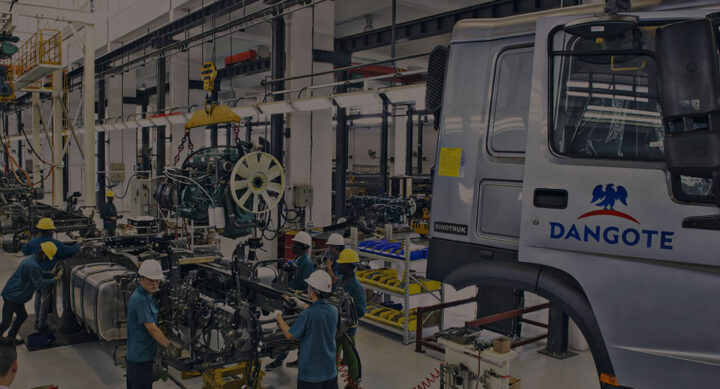We will almost never forget the “Hand of God” goal by Diego Maradona in the 1986 World Cup quarter-finals match between Argentina and England. It is, however, the dawn of a new era in sports, as artificial intelligence (AI) is starting to take center stage in the decision-making process for some of the world’s biggest clubs. From tactics and training to player recruitment and even match-day decisions, AI is increasingly being used by teams across a variety of sports to give them that extra edge over their competition.
The sports industry is one of the most rapidly evolving industries in the world. With the ever-growing popularity of spectator sports and the increasing amount of money involved in the business of sport, there is a constant need for new and innovative ways to improve the experience for both athletes and fans. One area that is currently undergoing a lot of change and development is the use of artificial intelligence (AI) in sports. AI is being used in a variety of different ways in the sports industry, from player tracking and analysis to fan engagement and experience. Player tracking and analysis is one of the most important uses of AI in sport. By using sensors and data collected from players, AI can be used to provide coaches with valuable insights into player performance. This information can then be used to make strategic decisions about game plans, player selection, and training regimes. Fan engagement and experience are other areas where AI is starting to make an impact. By using data about fan preferences and behavior, AI can be used to customize the fan experience by providing personalized content and recommendations. AI can also be used to improve ticketing systems so that fans can get access to the games they want to see without having to deal with long queues or sold-out tickets. In addition, AI could help coaches choose which plays to call, identify potential injuries, and predict the outcome of games.
Moreover, one great AI tool in soccer will be the Semi-Automated Offside Technology (SAOT), which is proposing an augmentation of the Video Assistant Referee (VAR) with bespoke cameras installed under the roof of the stadium. The cameras offer real-time tracking for all 22 players on the pitch, recording data points to calculate their exact position on the pitch. The 29 data points are on all limbs and extremities that are important for an offside decision (including the knees, upper arm, toes, head, and upper arm). It seeks to correctly estimate the exact position of each player on the field of play while the official World Cup match ball, the Adidas “Al Rihla” will be fitted with a sensor that shares data 500 times per second, allowing more accurate detection of a hand foul or the kick point than the use of conventional camera frames (limited to 50 frames a second). AI is then used to process this large amount of information to trigger an alert to the VAR when an offside or foul has been detected. The VAR must then validate the infringement to inform the referee who confirms the decision.
However, there are still many challenges that need to be addressed before AI can truly revolutionize sports. For example, AI systems need to be able to handle the complexities of team sports (each game is unique), account for the changing conditions of a game (such as weather), and deal with the inherent uncertainty in any competitive event. Nonetheless, it is clear that AI will play an important role in sports in the future. As AI technology continues to improve, and innovative products or processes are created, we can expect to see even more amazing applications of AI in sports decision-making.
Advertisement
It is worthy to note that AI may soon have the edge over human coaches. It is capable of analyzing large data sets despite inherent complexities quickly and accurately, something that human coaches simply can’t do. This ability gives AI the potential to make better decisions about game strategy and player selection if properly deployed. It could even be stretched to help create customized training programs for athletes. By analyzing an athlete’s individual strengths and weaknesses, AI can create a training program that is tailored specifically for them. This could lead to more successful athletes and teams in the future. So, while human coaches still have a lot to offer, it seems likely that AI will eventually take over when it comes to making decisions in sports. Smart teams are already leveraging this potential and how it could be deployed to their advantage.
Professional baseball, basketball, and hockey make use of AI to cushion up traditional coaching and player scouting. Baseball scouts have been using statistics to evaluate players. Today, AI is deployed to analyze an ever-expanding set of player data, which includes radar gun data (throwing speed and spin), video tracking (showing players’ movement around the pitch), and swing speed and angle from sensor-studded bats.
In addition, AI can be used to create virtual simulations of upcoming matches in order to help coaches plan their strategies. As earlier mentioned, it is already being done in baseball and basketball, and with time, it will become commonplace in football. So if you’re a fan of the beautiful game of soccer, make sure you stay up-to-date with the latest developments in AI or better still come up with a winning use case to drive team productivity!
Advertisement
For example, the Houston Rockets used AI to help them make the decision to trade for Chris Paul. By analyzing Paul’s on-court data, the AI determined that he was still an elite player and would be a valuable addition to the team. As a result of this decision, the Rockets went on to have one of the best seasons in franchise history. It’s clear that AI is here to stay in sports. As more and more teams embrace its capabilities, we will only see the impact of AI grow. So what does the future hold for AI in sports? One area where AI will continue to be helpful is in player development. By analyzing data from previous seasons, AI can help coaches identify areas where players need to improve. This information can then be used to create tailored training programs that help players reach their full potential. Imagine how the above could be leveraged to benchmark against great soccer stars and how training regimes could be deployed to build well-rounded teams by studying such stars.
Some companies doing amazing startup work with AI in Sports include Bayes Holdings, Veo, Sportlogiq, Nex Team, and Mobalytics.
Bayes Holdings formerly called Dojo Madness is an eSports startup that harnesses the power of big data to build tools and services. They have raised a total of $18.8m in funding over 5 rounds with 15 investors. Fertitta Capital and Sony Innovation Fund are the most recent investors. Their latest funding was raised on 16 September 2020.
Veo prides itself as the ultimate camera provider for team sports. They offer recording and live-streaming for matches automatically to take the game a level up without a cameraman. They have raised a total of $113.3m in funding over 4 rounds through 11 investors. Ventech and Chr Augustinus Fabrikker are the most recent investors, and their latest funding was raised on 7 June 2022 from a Series C round.
Advertisement
Sportlogiq is a venture-backed startup that develops sports statistics solutions. They have raised a total of $7.4M in funding over 5 rounds, with their latest funding raised on 29 August 2017 from a Series A round. They are funded by 7 investors, with Rho Canada Ventures and First Ascent Ventures being the most recent on their team of investors. Their products offer insights that help teams make smarter decisions. They also help broadcasters and the media bring their audience closer to the game with deeper analysis. They pride themselves as the industry leader for NHL hockey data-collection and advanced analytics. Sportlogiq tracks also every Swedish Hockey League game live as their official data partner. They are also the official data provider of the Professional Women’s Hockey Players Association.
In conclusion, Africans love sports a great deal, especially soccer, and we need to start thinking out ways to covert this passion with great followership into flowing cash. Thinking through the AI and good data utilization path could be a very good low-hanging fruit to realizing this dream for intending startups. I will close with a favorite quote from Edson Arantes do Nascimento (aka Pelé) who posits that success is no accident. It is hard work, perseverance, learning, studying, sacrifice, and most of all, love of what you are doing or learning to do. I do strongly believe these can help in the realization of the New Africa awaiting our creation.
Thank you for the continued investment in time. Please follow me on Medium: https://medium.com/@roariyo and LinkedIn: https://www.linkedin.com/in/olufemi-ariyo-923ba6130/ or email me: [email protected].
Advertisement






